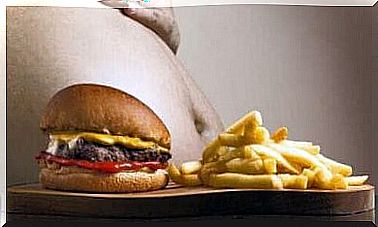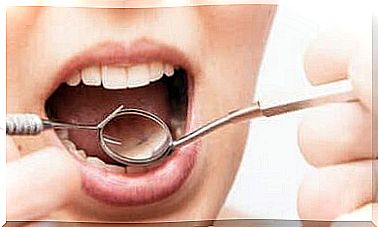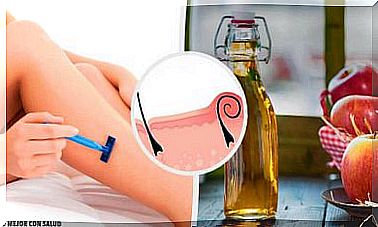The Effects Of A Low-carbohydrate Diet On Your Body

Low-carb diets have become popular as a way to lose weight and improve aspects of our health. The publicity they have received makes many people think that carbohydrates are harmful to our health and so we should not consume them. What are the effects of a low-carb diet on your body?
Are carbohydrates really that bad for your health? What happens to your body when you stop eating carbohydrates? Carbohydrate-rich foods provide our body with energy. Our bodies need them to function normally.
If we stop eating them altogether, it can harm our health. On the other hand, a very high carbohydrate content in our diet can also have negative effects. Therefore, we need to find a good balance and know how to choose the most suitable sources.

The Effects of a Low-Carb Diet on Your Body: The Benefits
Low-carb diets have not only sparked interest in humans in general. They have also become the subject of research as efforts are made to determine whether they are beneficial to health.
Through the research that has been done on this topic, the known effects of a low-carb diet are weight loss and other general health improvements. The main changes noted are the following:
- The body switches to using fat as an energy source as the direct availability of glucose from carbohydrates decreases.
- There are beneficial effects on weight loss. In the beginning there is a loss of fluids and after that the lipid deposits begin to decrease.
- The risk of cardiovascular disease decreases. Although experts have to conduct long-term studies, they have already found immediate positive results in body mass index, abdominal circumference, blood pressure, triglycerides and insulin in the blood.
- Improvements in the treatment of type 2 diabetes are noted, as shown in this overview of studies on the subject.
- There is a decreased appetite due to the increased presence of fat and protein.

The Effects of a Low-Carb Diet: The Downsides
Following a reduced carbohydrate diet can be done in several ways. The reduction can be very strict (as is the case with ketogenic diets), or it can be only a moderate reduction.
In all cases, studies show the appearance of a series of annoying symptoms and minor imbalances in the body. The most common are:
- Headache and confusion.
- Irritability.
- Leg cramps (these usually occur due to loss of magnesium and other minerals. It is not serious, but can be painful.
- Dehydration due to increased water loss.
- Constipation due to less fiber and adjustment of the digestive system.
- Bad breath (if the diet is very low in carbohydrates).
However, the above studies also found possible negative effects when the diet is continued for longer. The expert’s main concerns are the following:
- There are no long-term studies on the safety of the ketogenic diet, the most restrictive form of carbohydrate reduction.
- If dehydration occurs and any form of physical activity is initiated, there may be poorer performance, fatigue, increased body temperature, or changes in blood pressure.
- A very low carbohydrate intake, combined with a high protein content, increases glucose production in the liver and reduces the tissue’s response to insulin. These two conditions are markers of insulin resistance.
- Cardiovascular health can deteriorate if the presence of saturated fats increases.
Recommendations for a healthy low-carb diet
The effects of a low-carbohydrate diet can be beneficial if the individual follows certain guidelines to avoid its negative aspects. It can also become a varied, healthy and satisfying way of eating. What should we take into account? Let’s take a look.
1. A significant vegetable intake
In this regard, there is no difference in the recommendations for the general population. Because the diet contains no (or very few) grains, there is more opportunity to eat vegetables. If the guidelines are not too strict, more starchy vegetables can also be added.
2. Beware of Excess Protein
A low-carb diet does not necessarily have to contain a lot of protein-rich foods. It is enough to follow the standard recommendations and simply include the recommended amount of protein in each meal. The main sources are eggs, fish, meat, nuts and legumes.
3. Increase the amount of fat in your diet
When you stop eating carbohydrates, lipids become the main source of energy. These are necessary to maintain good general health, provide satiety and make it easier to follow your diet.
These are the most appropriate sources to add to your diet on a daily basis:
- Olive oil and olives.
- Avocados.
- blue fish
- nuts

4. Fruits and Grains
Only add fruits and grains in small portions if you are on a less strict low-carb diet. However, foods and drinks with added sugars and all processed products should be completely eliminated.
5. Keep an eye on your salt intake and water consumption
Reducing the presence of carbohydrates can lead to increased water and electrolyte loss, including sodium. This can cause a range of adverse effects that should be avoided. To do this, it is necessary to drink enough water and ensure adequate salt intake.
Ultra-processed products with high amounts of sodium should be avoided. However, you can cook with this seasoning at home, for example with low-carb recipes or stocks that you can drink throughout the day.
It is possible to eat healthy if you stop eating carbohydrates
Low-carb diets are popular for their positive weight loss effects. In addition, they have also shown good results in managing type 2 diabetes, reducing abdominal circumference and lowering blood pressure.
Nevertheless, it is important to know that there is also a risk of negative effects. You need to consider a series of dietary recommendations to do this safely. In this sense, it is advisable to ensure optimal intake of fresh vegetables, along with sources of fat and protein.
In any case, it is best to consult a nutritionist before following this type of diet. We must not ignore the fact that these eating patterns are not the most suitable in all cases. A professional nutritionist will determine whether this is recommended in your case or not.









